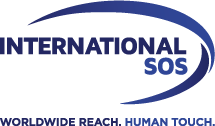STRONG OH&S PROGRAMMES: POTENTIAL BUSINESS ADVANTAGE FOR MULTINATIONALS IN THE TALENT DRIVEN INDIA MARKET
London
International SOS & Enhesa advise employers to be aware of the impact healthcare trends have on compliance, productivity and sustainability
Only 20% of India’s 465 million strong workforce are covered by the country’s existing health and safety legal framework. This is despite the high level of infectious diseases, and non-communicable diseases (NCDs) which account for an economic burden in India in the range of 5% to 10% of gross domestic product. Revealed in the latest International SOS and Enhesa white paper, ‘Investing and Operating in India; The Occupational and Workplace Health Risks from a Compliance and Duty of Care Perspective’, the report provides insight into the occupational and workplace risks and challenges faced by foreign organisations operating in India and best practices for success in the region.

Dr Rahul Kalia, Medical Director at, International SOS comments, “As India is increasingly becoming a preferred business location for multinational corporations, it is imperative for organisations with growth ambitions to implement and maintain effective health and wellness programmes in the environment of variable healthcare standards. In doing so, employers can tackle major absenteeism and presenteeism trends, which impact productivity and profitability, in an indirect but significant way.”
Dr Kalia continues, “Non-compliance with the regulatory framework and safety provisions in India can result in large financial penalties, and even imprisonment. However, some companies have understood the challenges of the environment and turn it into a competitive advantage.”
Identifying the key healthcare trends, the paper highlights that both infectious and non-communicable diseases pose a significant threat to employee health and wellbeing. Cardiovascular diseases, cancers, chronic respiratory diseases and diabetes are estimated to account for 60% of all deaths. Cardiovascular diseases specifically are among the leading ten causes of adult (25 to 69 years) deaths. Furthermore, NCDs account for about 40% of all hospital stays and roughly 35% of all recorded outpatient visits.
This is alongside the existing and traditional occupational health and safety challenges, such as accidents, pneumoconiosis, musculoskeletal injuries, chronic obstructive lung diseases, pesticide poisoning, noise-induced hearing loss and infectious diseases. In addition, violence in the workplace is a prominent concern for organisations.
President of The Employers' Federation of India, Mr Vineet Kaul, says, “Over the past few years, the country has seen several changes in its economic and environmental conditions, and businesses are required to adapt to these changes. While significant progress has been made, healthcare trends in India have been and remain consistent with challenges other emerging countries face. The magnitude and complexity of the workforce required to drive economic growth makes it imperative for emerging economies to focus on occupational health as an integral part of corporate growth strategies.” he says.
As well as the requirement to maximise productivity, risk avoidance and sustainability are also at stake. The paper outlines the key workplace, health and welfare regulations with which organisations need to comply, as well as best practice from a Duty of Care perspective. It also suggests a framework of regulations, requirements and best practices for overseas organisations to protect their workforce and improve productivity in the region.
Tjeerd Hendel-Blackford, Head of Thought Leadership at Enhesa, states: “As a result of the many challenges relating to employee wellbeing, most standard medical emergency management strategies are difficult to implement in India. Taking a proactive approach to managing occupational health challenges will mitigate risks to employees, demonstrate a commitment to Duty of Care and support sustainability goals and reporting.”
The paper, which also includes case histories, is available here.
ENDS
Notes to Editors
About the International SOS Group of Companies
The International SOS Group of Companies is in the business of saving lives, protecting your global workforce from health and security threats. Wherever you are, we deliver customised health, security risk management and wellbeing solutions to fuel your growth and productivity. In the event of extreme weather, an epidemic or a security incident, we provide an immediate response providing peace of mind. Our innovative technology and medical and security expertise focus on prevention, offering real-time, actionable insights and on-the-ground quality delivery. We help protect your people, your organisation's reputation, as well as support your compliance reporting needs. By partnering with us, organisations can fulfil their Duty of Care responsibilities, while empowering business resilience, continuity and sustainability.
Founded in 1985, the International SOS Group, headquartered in London & Singapore, is trusted by 12,000 organisations, including the majority of the Fortune 500, as well as mid-size enterprises, governments, educational institutions and NGOs. 12,000 multicultural medical, security and logistics experts stand with you to provide support & assistance from over 1,000 locations in 90 countries, 24/7, 365 days.
To protect your workforce, we are at your fingertips: www.internationalsos.com
About Enhesa:
Enhesa (enhesa.com) helps global multinational companies be compliant with, and stay on top of, Environmental, Health & Safety (EHS) Regulations wherever they operate. Enhesa’s in-house team of multilingual regulatory analysts provide clear, concise and standardized content and insight on current and future EHS regulatory obligations in more than 285 jurisdictions worldwide. Enhesa’s Compliance Intelligence and Regulatory Forecaster services can be provided as an automated data feed - integrated with the world’s leading EHS software platforms. Enhesa has offices in Brussels, Washington, D.C., Tokyo and now, Shanghai.
For more information, please visit enhesa.com or email info@enhesa.com


